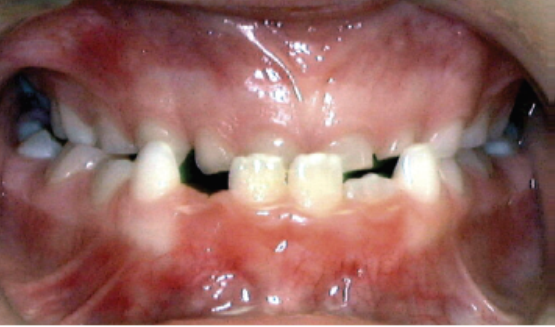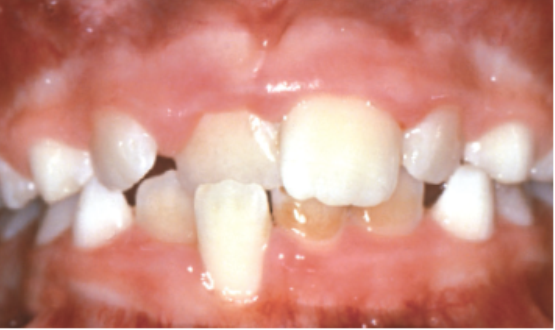Problems to Look for at Age 7-8: Anterior Crossbite (Underbite)
April 9th, 2018
Many parents are surprised to learn that their child might need braces as early as age 7 or 8. Lots of these parents remember getting braces themselves around age 12 or 13, and their initial reaction is, "That seems really young for braces. I didn't need them that young. We're going to wait." Waiting until 12 or 13 is still the right choice in lots of cases, but there are a few problems that require intervention sooner. We only recommend early treatment in cases where we know we're likely to get a better long-term result by taking action sooner rather than later.
Today we're going to discuss one of these types of problems, the anterior crossbite or underbite.
Anterior crossbites can be caused by a couple of different problems. Sometimes they result from disparities in jaw growth between the upper and lower jaws. This is significant because at age 7 or 8, we have the greatest likelihood of being capable of influencing the patient's jaw growth. As they get older, it becomes increasingly difficult and the results are less robust. In severe cases, early intervention may be able to help the child avoid requiring a surgical correction later in life.

Another possible cause of an anterior crossbite is the misalignment of teeth in jawbones that are growing normally. If upper teeth erupt into the mouth but are tipped too far back or lower teeth erupt that are tipped too far forward, an underbite can result. Once the teeth have come in with this relationship, they will not self-correct. In fact, they will only get increasingly "set in their ways" if you will as time goes by. This means that they will become increasingly difficult to correct. In addition, leaving these teeth in the wrong positions for too long can lead to other unrelated problems. For example, lower teeth that are trapped in a forward position are more likely to experience recession of the gums or mobility.

If your child is experiencing any of these problems, it's a wise choice to speak with an orthodontist. In our office, like most offices, consultations are free, and you will at least leave armed with the knowledge you need to know whether you want to proceed with treatment or allow more time. As always, we welcome your calls and emails if you have any questions!

 Website Powered by Sesame 24-7™
Website Powered by Sesame 24-7™